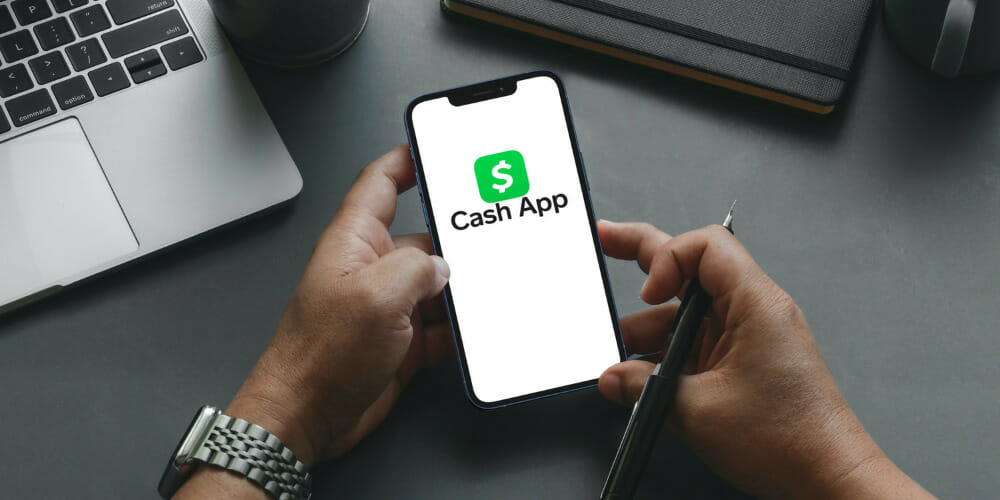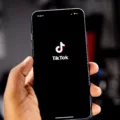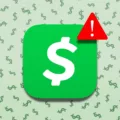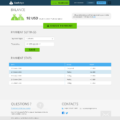Cash App is a popular mobile payment service that allows users to send and receive money easily. But what happens to your Cash App money if it goes unused for an extended period of time? Does it expire? In this article, we will explore the topic of Cash App money and whether or not it has an expiration date.
First, let’s clarify how Cash App works. When you receive a payment through Cash App, the funds are instantly available in your balance. This means that you can use the money right away to make purchases or transfer it to your bank account. However, if you choose to leave the money in your Cash App balance, it will remain there until you decide to move it.
Unlike traditional banks, Cash App does not provide a separate account number for its savings feature. Instead, it offers a savings balance where you can store money and set goals. You can add funds to your savings balance from your Cash App balance or from a linked payment source. This feature allows users to save money within the app for future use or expenses.
Now, let’s address the question of whether Cash App money expires. The short answer is no, your Cash App money does not have an expiration date. As long as the funds are in your Cash App balance, they will remain there until you choose to transfer them. There is no time limit or deadline for using the money in your Cash App account.
However, it’s important to note that merchants, such as hotels or gas stations, may put a temporary hold on Cash Card payments that appear in your transaction activity. These holds are typically released within 10 business days, and the funds will be automatically returned to your Cash App balance. So, if you notice a temporary hold on your Cash App money, rest assured that it will be resolved within a reasonable timeframe.
Another aspect to consider is the request money feature on Cash App. When you request money from someone, they have 14 days to accept or decline the request. If they do not respond within this timeframe, the request will automatically expire. This is worth noting if you regularly use the request money feature on Cash App.
Cash App money does not expire as long as it remains in your Cash App balance. You have full control over when and how you use the funds in your account. However, it’s important to be aware of temporary holds that merchants may place on Cash Card payments and the expiration of money requests. By understanding these aspects of Cash App, you can make the most of your money and effectively manage your finances within the app.

How Long Will Cash App Hold Your Money?
Cash App may place a temporary hold on your funds for various reasons, such as when you make a payment at a hotel or gas station. The hold is typically released within 10 business days, and the funds will be automatically returned to your Cash App account. During this hold period, you may notice that the transaction appears in your activity but the funds are not immediately available for use. Rest assured that the hold is temporary and once it is lifted, you will have full access to your money.
How Long Does It Take for Cash App Money to Expire?
When you request money on Cash App, the recipient has a total of 14 days to accept or decline the request. If the recipient does not respond within this 14-day period, the request will automatically expire and be voided. It’s important to note that the expiration of a money request is independent of whether or not the recipient has the funds available in their Cash App balance.
On the other hand, when you receive a payment through Cash App, the money will be instantly available in your Cash App balance. There is no expiration date or time limit for the funds that you receive. Once the payment is received, it is immediately accessible for you to use or transfer as you wish.
The expiration of money requests on Cash App occurs after 14 days of inactivity from the recipient, while received payments are instantly available with no expiration.
Can You Keep Money on Cash App?
You can keep money on Cash App. Cash App provides a convenient way to store your money and keep it within the app. You can securely store your funds in your Cash App balance, which acts as a separate place to hold your money.
To add funds to your Cash App balance, you can transfer money from your linked bank account or debit card. Once the funds are in your Cash App balance, you can use them to make payments, send money to friends, or make purchases through the app.
Cash App also offers a feature called Savings, which allows you to set savings goals and add funds specifically to your savings balance. This feature provides a separate place to save money within the app. You can contribute to your savings balance from your Cash App balance or from a linked payment source.
It’s important to note that Cash App’s savings balance does not have a separate account number like traditional banks. Instead, it functions as a virtual savings account within the Cash App ecosystem.
Cash App provides a convenient way to keep money within the app. You can store funds in your Cash App balance or set savings goals with the Savings feature.
What Happens When You Leave Money in Cash App?
When you leave money in your Cash App account, it remains there until you decide to withdraw or transfer it to your bank account. Cash App acts as a digital wallet where users can store funds for future payments or use them for online transactions. However, it is important to note that Cash App is not a traditional bank and the funds in your account are not protected by the Federal Deposit Insurance Corporation (FDIC).
Here is what happens when you leave money in Cash App:
1. Funds remain in your Cash App account: When you receive money or add funds to your Cash App account, the money stays there until you choose to do something with it. It will be reflected as a balance in your Cash App account.
2. No FDIC protection: Unlike traditional banks, Cash App does not provide FDIC insurance for the funds in your account. This means that if Cash App were to face financial difficulties or go out of business, your funds may not be protected.
3. Stored value accounts: Some users treat their Cash App accounts as stored value accounts, similar to traditional banks. They keep funds in the app for future payments or as a form of savings. However, it is important to understand that the funds in these accounts do not have the same protections as traditional bank accounts.
4. Risks and considerations: Leaving money in Cash App for an extended period of time carries some risks. If Cash App were to experience technical issues, security breaches, or regulatory problems, it could potentially impact your ability to access or retrieve your funds.
5. Withdrawal and transfer options: To access the funds in your Cash App account, you have the option to withdraw the money to your linked bank account or transfer it to another Cash App user. These transactions typically require a few business days to process.
When you leave money in Cash App, it stays in your account until you decide to withdraw or transfer it. However, it is important to be aware that Cash App is not a traditional bank and the funds in your account do not carry FDIC protection. It is advisable to carefully consider the risks and make informed decisions when using Cash App as a storage medium for your funds.
Conclusion
Cash App provides a convenient way for users to send and receive money, make payments, and even save money through their Savings feature. It is important to note that merchants may place temporary holds on Cash Card payments, which will be automatically returned to the user’s Cash App when the hold is released. Additionally, when requesting money from someone, they have 14 days to accept or decline the request, after which it will expire. On the other hand, when receiving a Cash App payment, the funds are available instantly in the user’s balance.
The Savings feature allows users to set goals and add funds from their Cash App balance or linked payment sources. However, it is essential to keep in mind that Cash App’s savings balance does not have a separate account number like traditional banks. The funds stay in the Savings balance until users choose to move the money into their bank accounts, although some users may leave money in the app for future payments, treating it as a traditional bank.
It is important to be aware that funds in the apps’ “stored value” accounts may not carry the same protection as traditional banks, such as the FDIC. Therefore, users should exercise caution and ensure they understand the terms and conditions of using Cash App, especially when it comes to storing and managing their money.








